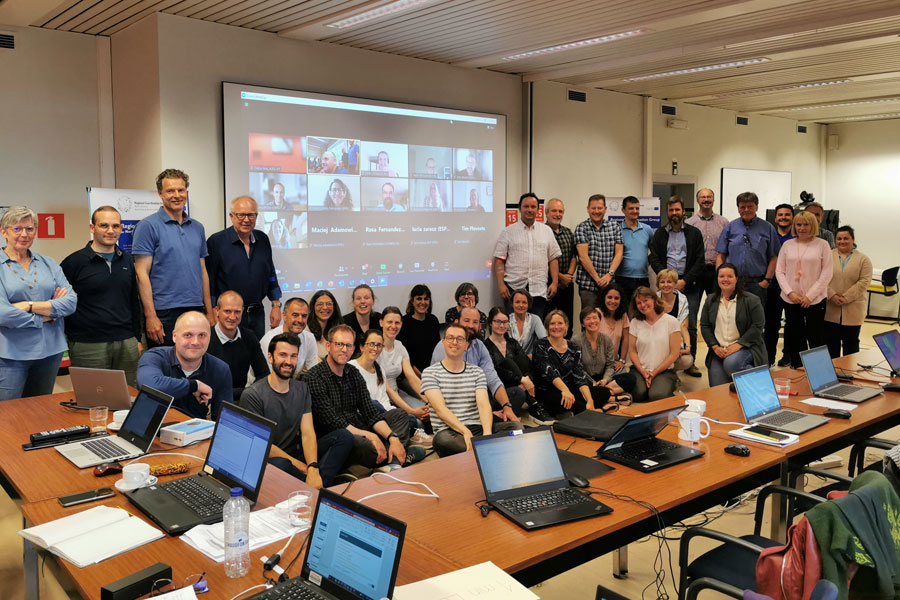The annual report of RCG NANSEA & RCG Baltic technical meeting 2022 is now available under the Reports section. The document is composed of three parts: Part I report compiled after the annual technical meeting (TM ), Part II Decisions and Recommendations, Part III, Intersessional Subgroups (ISSG) 2021-2022 Reports.
RCG RCG NANSEA and RCG Baltic 2022 TM was held from 7th to 10th June in Ostende in hybrid format, with the participation of 92 experts representing, 16 Member States, Joint Research Centre, DG MARE, and ICES.
Five ToRs were handled during the RCG NANSEA and RCG Baltic 2022 TM; all intersessional were carried out by designated ISSGs and SGs during the RCG. The intersessional work 2021-2022 was a setup of 16 different ISSGs, including one ICES RDBES group.
ToR 1: This year, the alignment between data collection and end-user needs (by region) has progressed through the ISSG on End Users and RCG, the feedback from the COM and ICES (as the primary end-user of the RCG work), and the presentations on genetic methods in data collection and the FishGenome project.
ToR 2: This ToR is related to quality in data collection and has progressed this year through the work of the following ISSGs and RCG SGs: ISSG on RDB catch, effort and sampling overviews, SSG on métier and transversal variable issues, ISSG on electronic monitoring technologies (EMT), ISSG on Surveys, and the feedback on the RDBES data call.
ToR 3: The task to determine the impact of management measures on data collection was carried out by analysing responses to a questionnaire sent to MSs before the TM. The outcomes from the analysis of the answers provided in this questionnaire will constitute the basis for identifying data gaps in the stock assessment work.
ToR 4: Relating the development and implementation of RWPs progress was achieved this year through the work of the following ISSGs and RCG sub-groups: ISSG Optimized and Operational Regional Sampling Plans, ISSG Case study of fisheries for small pelagics in the Baltic, ISSG Case study freezer trawler fleet exploiting pelagic fisheries in the Northeast Atlantic, ISSG Case Study of the trawl fishery in Iberian Waters, ISSG Evaluation of the data collected for the SSF at EU level, ISSG Identification of case studies for PETS bycatch monitoring, ISSG Diadromous fishes, ISSG Recreational fisheries and the feedback from ISSG Regionally coordinated stomach sampling.
ToR 5: Regarding ways to improve the regional coordination and feedback on regional issues, the outcomes from Fishn’Co and SecWeb project and ISSG & SG National Correspondents work were reviewed.
Most groups conducted their tasks as planned and presented the results during the RCG NANSEA and RCG Baltic 2022 TM. The output of the ISSGs was extremely valuable for the work of the TM and were the basis for the discussions at the meeting, which are now compiled in the reports available at following links:
